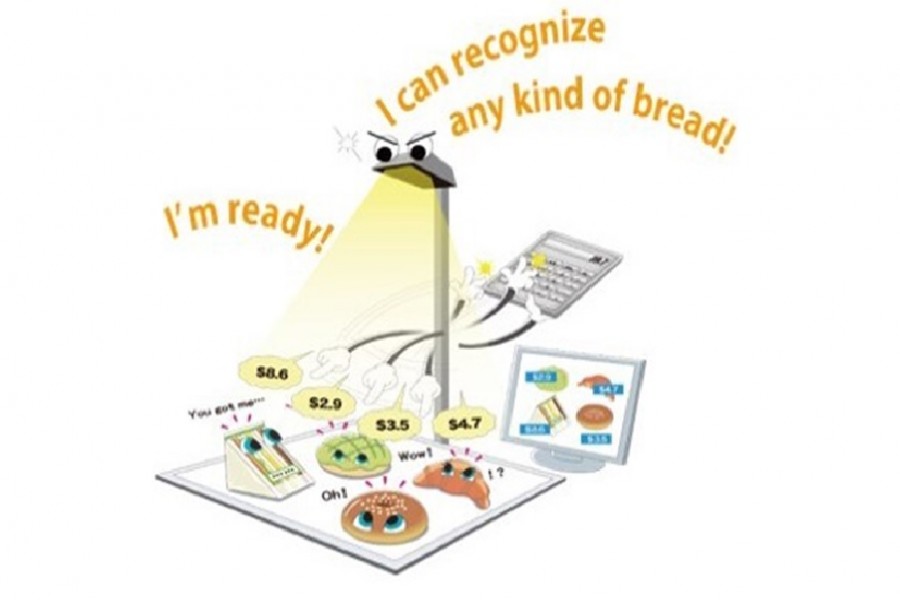
Published :
Updated :

It started at a bakery shop in Ueno train station, Tokyo. A pastry scanner could scan the pastries that the customer chose, calculate the bill, and display the payment as a total on a screen. No manual labour is needed.
In Japan, bakery success rate follows the variation in bakery items. It is difficult to memorise and remember all the pastries and their details. To replace that extra brainwork that could lead to faults, Hisashi Kambe, the founder of BRAIN, a research and development company based on various computer systems, prepared a machine that could take photos of pastries and self-learn the patterns from them. The sellers could easily mistake one pastry item for another, having overlooked tiny details. Therefore, a need for a computerised system that could think like the human brain to classify and recognise different patterns was deemed necessary.
Mr Kambe and his team continuously worked on building a machine based on image recognition and several algorithms. This machine called BakeryScan could detect the pastries flawlessly after a mammoth level of updates and tests. Quickly, the tale of BakeryScan spread all over Japan. Moreover, it captured the world's attention in a short span of time.
How BakeryScan did it? It took samples repeatedly and implemented Deep Learning at its core. Deep Learning needs a dataset, a huge one. Only then, the precision becomes sharper. For example, self-driving cars are the new awe to the world. On the other hand, remember the experiments on different online sites where they ask you to prove whether you are a bot or not? These are all examples of Deep Learning.
It has been the dream of humans to get machines that could automatically detect shapes and figures like the combination of the human brain and the human eyes. Could machines do that? Neural Networks have become promising in the Artificial Intelligence area only in the past few years. In addition, Deep Learning came in. A neural network is a network where the neurons have multiple layers, and the layers are in order. The network can critically and precisely detect shapes and figures of a matter immediately after an experimental number of images has been shown to it.
To your surprise, there is a difference between bakery cells and carcinogenic cells (cells that could grow to cancer). A doctor at Louis Pasteur Center Medical Research, Kiyoto, Japan already knew about it and gave proper attention to BakeryScan just by seeing it on TV. Hisashi Kambe's team already had a grip on the details of a pastry's outer layer. How would a machine that can scan pastries scan cancer in the cells? The surprising revolution happened in 2017. For pathology, BakeryScan got remade. The technology that the BRAIN team had developed got renamed as AI-Scan. AI-Scan started multifunctioning across a variety of applications. For example, a company used it to check faulty wired balls in jet engines.
Cyto-AiSCAN, the remade version of BakeryScan, could detect carcinogenic cells faultlessly too. It had successfully managed to analyse a full slide containing multiple cells. It could identify the carcinogenic cells, and tests were successful in the two major hospitals situated in Kobe and Kyoto. The system of Cyto-AiSCAN was 99 per cent accurate and made the process much easier for doctors and pathologists working with cancer.
Hisashi Kambe and his team of diligent minds made BakeryScan in 2013. The machine now cells for an approximate price of 20000 dollars. Even in this pandemic, when items have cellophane papers wrapped around them, BakeryScan can classify pastries and show prices accordingly.
sofiautilitarian@gmail.com


 For all latest news, follow The Financial Express Google News channel.
For all latest news, follow The Financial Express Google News channel.